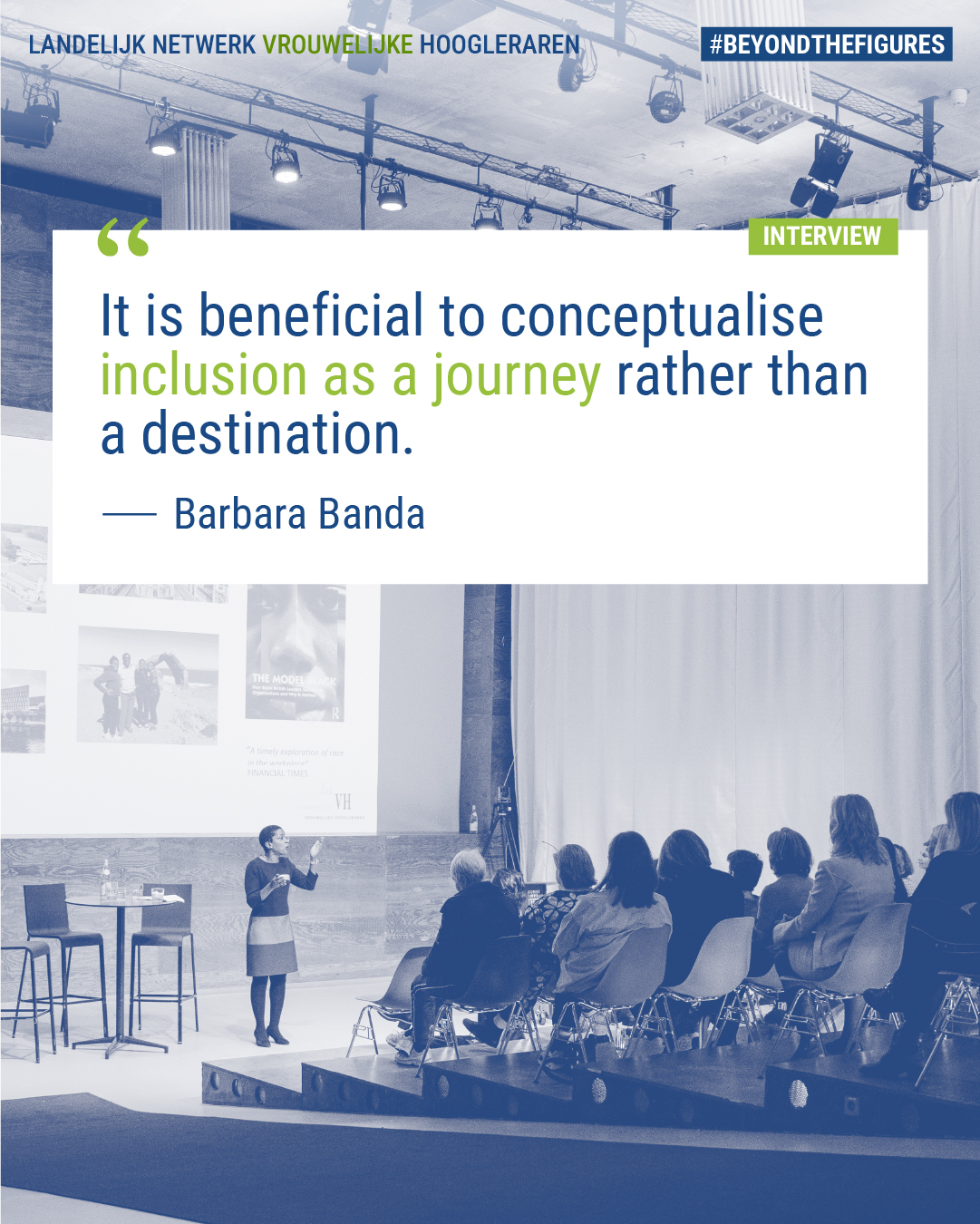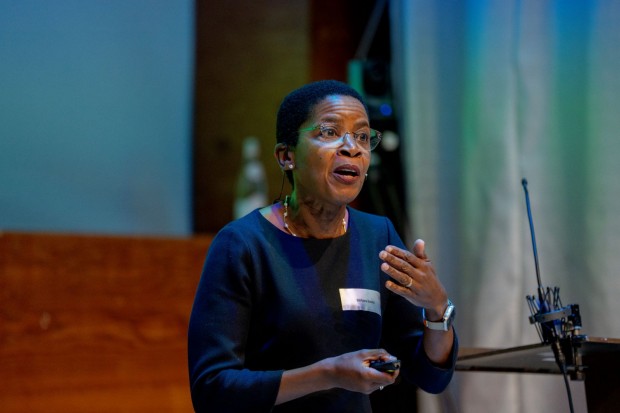'Become culturally literate'
On October 10, Professor Barbara Banda spoke at the LNVH Affiliates Meeting 2024 on 'How Black Women Navigate Race and Why It Matters to White Women.' We engaged with her in a conversation about diversity, 'genuine' inclusion, and her views on intersectional policy. 
In your presentation during the LNVH Affiliates' Meeting 2024, you talked about 'white feminsm', a term which is used to describe expressions of feminism which are perceived as focusing on white women while failing to address the existence of distinct forms of oppression faced by ethnic minority women and women lacking other privileges. Do you believe gender diversity policy only benefits white women if it’s not intersectional?
I would like to emphasise that our discussion should not frame the experiences of Black and white women as a zero-sum game. This is not about competition; rather, it is fundamentally about equity, diversity, and inclusion. A quote from my book by a former Head of the UK Commission for Racial Equality illustrates this well: men often have sisters and wives, allowing them to grasp the significance of equal opportunities concerning those close to them. However, they may lack meaningful connections with individuals from diverse ethnic backgrounds. This insight aligns with findings from Catalyst, a U.S. organization dedicated to advancing women in leadership. The data suggests that white women often maintain close societal and familial ties with white men, who predominantly occupy senior positions in organizations. This proximity to power has afforded them greater opportunities and, in the U.S., they have been the primary beneficiaries of affirmative action policies.
Moreover, there are additional studies from the UK indicating that white women are promoted faster than Black women. For instance, a recent study from the UK NHS highlights these disparities in advancement with black nurses waiting twice as long to be promoted. Consequently, it is crucial to focus on intersectionality so that all women can benefit from advancements in equity and inclusion.
You talked about how ‘whiteness’ is seen as the default for organizational norms. ‘Whiteness’ is the standard in office behaviour and workplace values. What can leaders (and we as individuals) do to make sure diversity is not just okay if the ‘diverse’ individuals adapt to these norms, but make sure they can truly be themselves, in other words: how can we be truly inclusive?
It is beneficial to conceptualise inclusion as a journey rather than a destination. From an organizational perspective, it is essential to focus not only on access for women of diverse ethnicities but also on outcomes. Key questions to consider include: How long do these women remain with the organization? What is the duration of their wait for promotions? To what extent do they feel a sense of belonging?
Achieving true inclusion requires a comprehensive program of measures aimed at minimizing bias in recruitment, retention, and promotion. Furthermore, it is crucial to establish how leaders are evaluated and rewarded based on their progress toward fostering an inclusive environment. On an individual level, it is important to recognise and understand concepts such as white fragility. White women, in particular, could leverage their advantages while also acknowledging and calling out unacceptable behaviour within their spheres of influence.
You indicate that the typical black career path can be full of hurdles. What was the biggest hurdle on your career path and what is a common hurdle many black people face that we should all be (more) aware of?
There are numerous hurdles to overcome in this context. If there were only one hurdle, we might be able to easily surmount it. For instance, if the challenge were solely related to qualifications, we could focus our efforts on competing at that level. However, the reality is that we face a multiplicity of obstacles. That said, implicit bias is one of the key obstacles.
In my talk, I highlighted some of the negative perceptions surrounding black individuals in society, which often manifest in the workplace. These perceptions can include assumptions that black employees are less reliable, less intelligent, less productive, and more problematic than their white counterparts. Additionally, there exists a belief that they do not contribute anything of significance to the organisation. We need to understand our biases and challenge these assumptions.
In your presentation, you provided a checklist for white people to assess how they can be (better) allies. What is (are) the most important item(s) on that checklist?
I believe that white women need to take on a greater share of the responsibility - do more of the heavy lifting. It is essential for them to engage actively in raising critical questions about inequalities and injustices.
Your research shows that one of things that helped black women to become successful is the fact they are supported by a strong black community. Would it be beneficial to have a national network of Black female leaders (similar to the Dutch Network of Women Professors), or would it be a better step/more important to (further) integrate Black women into existing women's networks?
I believe the answer to your question is both-and. Black women need their own organisations and dedicated spaces. Equally, greater efforts should be made to ensure that Womanism is centred and understood within the broader network.
What did you take away from the LNVH Affiliates' Meeting?
I think my conversation with Judi reminded me of how much the UK and the Netherlands have in common, particularly in terms of how racism is entrenched in post-colonial societies like both countries. There was also a sense that liberal approaches to equity, diversity, and inclusion have not been effective, suggesting that a more radical approach may be necessary. Finally, I recognise the risk that, as academics and experts, we may spend a great deal of our time in analysis without actually coming up with and implementing practical solutions.
What is your most important tip for leaders (in academia) that want to approach conversations about race in a positive way?
Become culturally literate. Commit to understanding the lived experiences of individuals from diverse backgrounds. Gain an understanding of the complex issues that affect different communities and an awareness of how these challenges are shaped by broader societal forces. Beyond this mere awareness, it requires the moral conviction to take principled actions, advocating for equity and justice, even when it is difficult or uncomfortable to do so.

Prof. Barbara Banda during her talk at the 2024 LNVH Affiliates' Meeting. Photos by Mathilde Nai.

